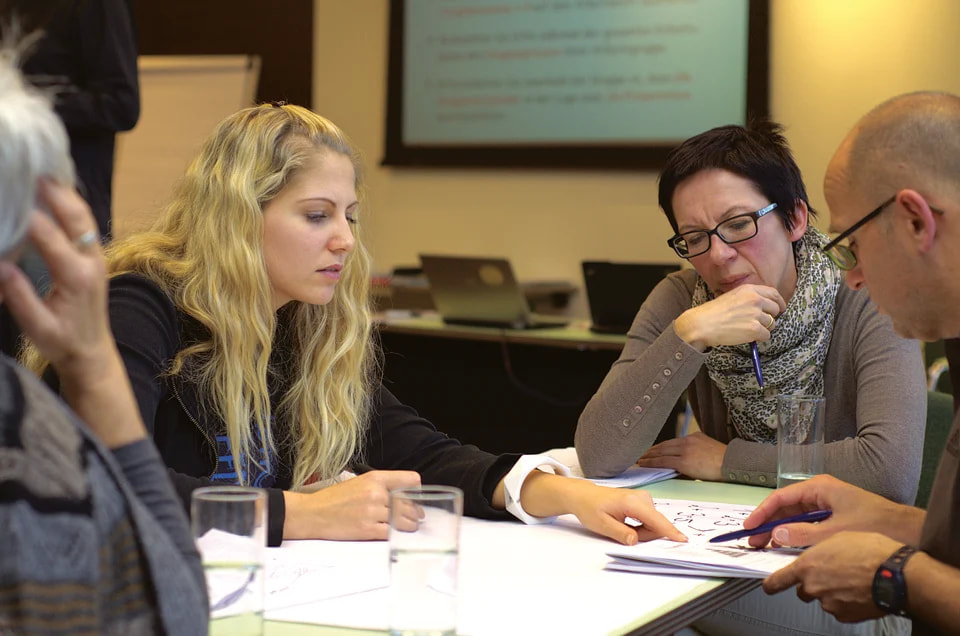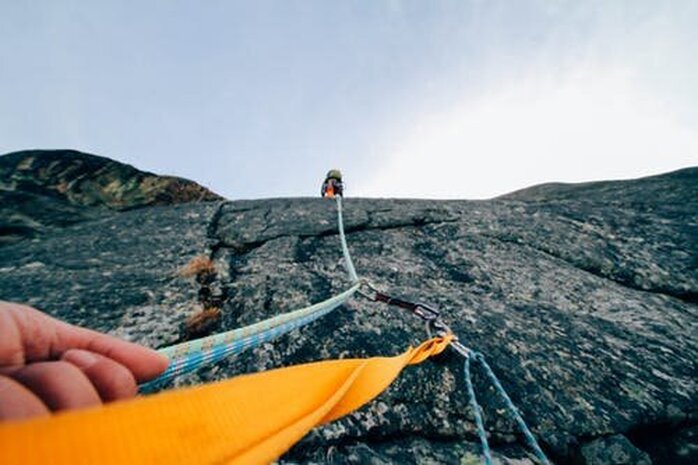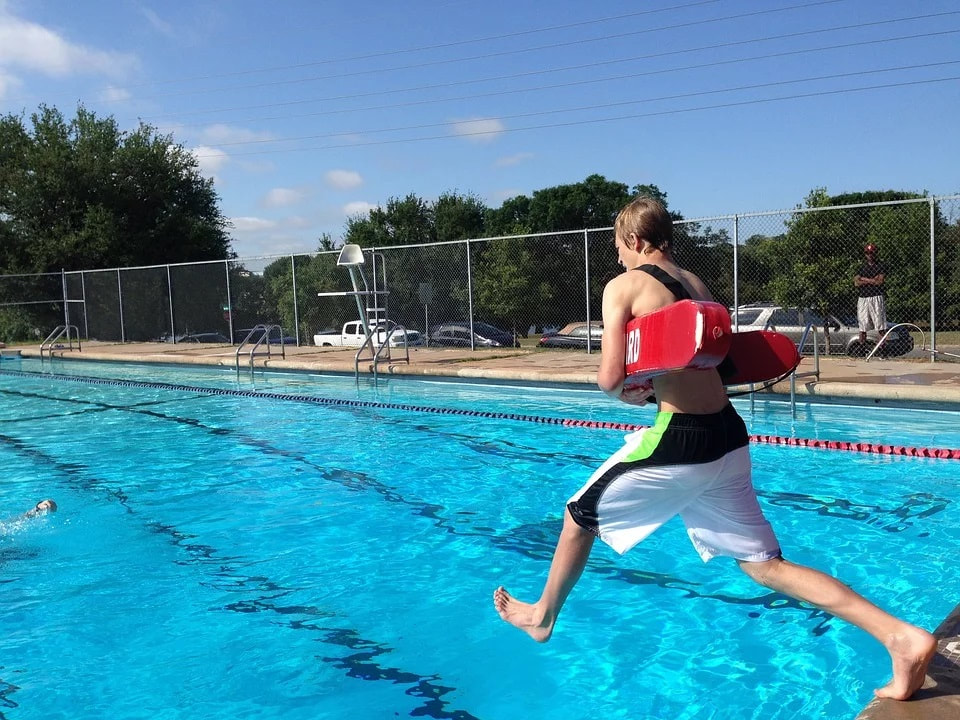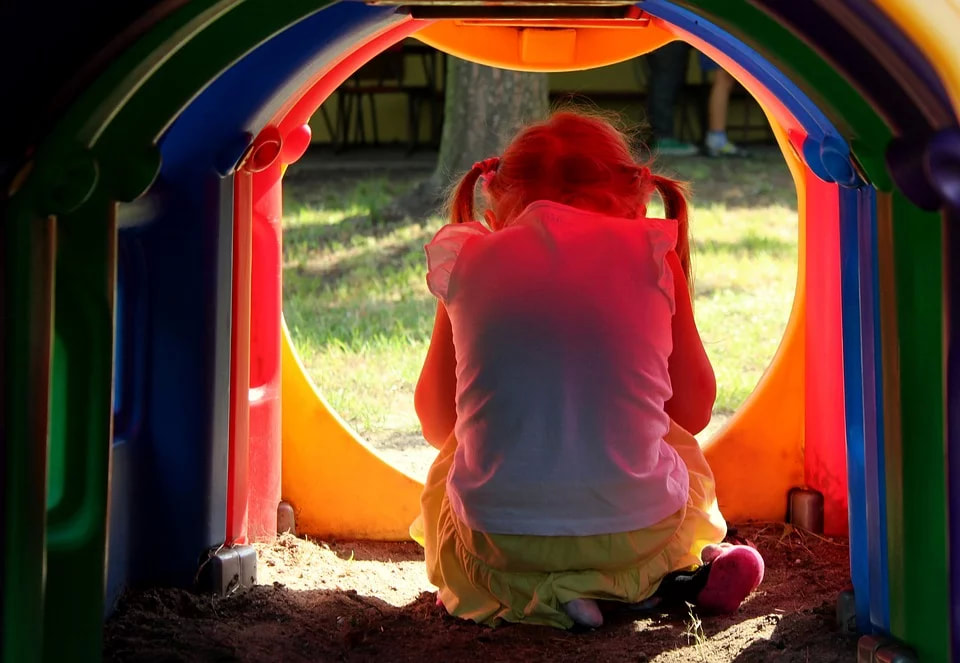|
OK! Before you fall asleep with the thought of two days of risk management training, hear me out!
What are the most exciting things you do in education? It probably has nothing to do with sitting in a classroom and completing worksheets. Each year, that puts countless people to sleep. Education needs to be dynamic, exciting and engaging to equip students with the skills they need for life. However, to run really cool programs like this, we usually have to step outside the school gates and engage with the real world. Only problem is that when we do this, there’s a whole stack of inherent risks with which we’re suddenly confronted. Everything from your usual stack of peanut allergies, to your bus strangely catching on fire, which to be clear was not actually my fault. The randomness and richness of the world outside the school gates is the most amazing place in which to learn, but if we’re not trained and equipped to plan for and manage risks in this environment, then we’re putting ourselves and our students at risk. At this point we have three options: Option 1. Don’t go! It’s all too hard! School’s not about the real world anyway. If you take this option, you probably should have become an accountant or a public servant, perhaps both. Complete risk aversion is pointless and damaging and should be avoided. Option 2. Just do it! Grab your bags, kids and let’s go! If you take this option, which unfortunately, I’ve seen many teachers do, then you’re setting yourself up for some major problems. Anything can and does go wrong in these situations where well-intentioned teachers don’t take the time to plan, prepare for and run their programs carefully. Option 3. Have a structured, well-planned approach for all of your programs which documents the steps you need to take to ensure your group is well managed and the focus is on great experiential education outcomes for students, with robust systems in place for contingencies to support this. For me, the only option when running any excursion, camp, sport or activity is Option 3. However, most schools are operating somewhere in between Option 1, 2 and 3 with many teachers confused about their role and responsibilities when planning and running any programs. Even experienced staff can struggle with this. You must put the time, energy and effort into building a well-formed plan no matter what the activity is. It could be just going down the road to visit the local court. It could be a year level camp, or an overseas trip. Whatever the case is, you need to ensure you’ve planned for normal operations and contingencies if something doesn’t go to plan, which invariably will be the case. One trip I was on, I received a phone call to say that one of the 5th Grade students had been taken to hospital with a fish hook in his arm! I was pretty surprised by this, since there was no fishing on the program, yet here we were with fish hook in the arm, right next to a vein. Risk Management Training prepares you for weird random stuff like this and how to respond quickly and effectively no matter what the context. With a non-delegable duty of care, you also can’t outsource your risk management to another organisation, even if they suggested you can. It just doesn’t work that way. Instead, you and your school are ultimately responsible for the duty of care over your students for any trips you’re on. “But they didn’t tell us that at uni!” I hear you say! True, unis don’t actually equip teachers with most of the skills they need with which to teach, but that’s another matter. At the end of the day, if you’re running any sort of excursion, camp, sport, overseas trip or any other sort of school activity which requires you to produce a risk assessment, you need to be trained in risk management. It’s no good just to copy and paste what the last untrained person produced and put your name to it. That’s a dangerous precedence which will come back to bite you. Risk management training isn’t about putting you to sleep for two days. It’s about giving you clarity and confidence through practical experienced-based training on how to run effective and safe programs. Get in touch with us today to see how you can build this training in to your professional development schedule to ensure you’re running the best programs possible for your students.
0 Comments
Where do you start with Risk Management? With any experiential education, you have a professional responsibility to pro-actively manage risk. This is an ever-evolving and dynamic skill-set that you develop over the years through training and experience. It’s something we can never take for granted. We take a look at some of the challenges we face in managing risk and what can happen, when things don’t go to plan.
In this episode, we talk with Paul Tame, who is a leading risk management trainer with Xcursion Risk Management Training, Lead corporate management trainer for Zen Training & Senior lecturer at Western State Uni Colorado. We take a dive into risk management for experiential education and touch on a few challenges we all face when planning and running programs. Risk Management Podcast Episode - Paul Tame & David Gregory Talk Risk Management! Often things look great on paper. However, how does that translate into the real world? With risk management for any sort of activity, it needs to be a living and breathing culture within your organisation and not just a bit of paperwork someone completed and then filed away. For more information on Paul’s work and the organisations he’s worked with over the years, check out: Zen For Business https://www.zenforbusiness.net/ Xcursion Risk Management https://training.xcursion.com.au/ Western State Uni https://www.western.edu/ And Crested Butte a fun ski resort we’ve skied together at: https://www.skicb.com/ For more information on Denali: https://www.nps.gov/dena/index.htm https://www.weather.gov/afg/denaliclimbing Working in risk management, this is one of my biggest concerns and ongoing frustrations. Why don’t people take action, manage and reduce risk until it’s too late? Far too many schools and organisations wait until they’ve had a major incident to ensure they have systems in place and the right people in place to manage risk.
Why is this? Are we all wired to think that everything is going to be ok and run exactly to plan? Is it the unconscious incompetence that comes with being new to something? Or is it not really caring? To be honest, I really don’t think it’s not caring. Generally, people are in education to help others achieve goals and consequently tend to care about what happens as a result. However, the focus of teaching and teacher training is on classroom practice and although many lessons don’t go to plan, there’s not really a need to mitigate against this risk other than to make sure you plan your lesson. Yet when planning an excursion, trip, activity or sport outside of the classroom, the same level of preparation rarely goes into it. The problem is that the management of risk and the actual risks inherent to the activity, excursion or sport is rarely understood, especially if the main focus of someone’s training and employment has been unrelated. Just because someone can teach and manage a group in the classroom, doesn’t mean he or she can facilitate and manage a group in an unstructured and unregulated environment. The result of this usually ends up with most things going to plan, but when something doesn’t, it can go pear-shaped very quickly and generally when this happens, the response is just made up as they go. This can exacerbate a problem or an incident and needlessly escalate it, which can result in further damaging consequences for staff and students. Once a teacher, administrator, school or organisation has gone through this experience, they then suddenly start to think about risk management in a meaningful way. However, this is too little, too late. The horse has already bolted and it’s not coming back. The first school I worked for unfortunately had to go through a fatality for them to realise that they had a risk management problem. I was one of the new staff employed after the fatality and the fall out from this lasted for years for some and a lifetime for many others. Whilst a fatality is thankfully a very rare occurrence, there’s many other incidents which still regularly occur that are completely preventable. There’s enough knowledge, experience and technology available to prevent so many incidents from occurring year, so why don’t people do anything about it until it’s too late? More often than not, it’s what’s referred to as unconscious incompetence. You don’t know what you don’t know. How can someone be expected to manage something, if they have no idea about what they’re managing nor why they’re supposed to be managing it. All programs and activities start with good intentions to create great educational outcomes. However, good intentions don’t always translate to good management. Therefore, specific training is essential in general risk management for school activities, sport and excursions, as well as more focussed individual activity risk management training. This sort of initial training helps move people from the unconscious incompetence, to the conscious incompetences skill level and can be quite confronting and eye-opening for most people. Suddenly, they realise the holes, gaps and risks in the programs for which they’re responsible and start to do something about it. Experience and further training at this stage then moves a person from this conscious incompetence stage into the conscious competence stage. At this point, the person understands risks, controls them and continues to actively manage and work towards risk management goals and develop a culture of risk management within their organisation. It’s at this point you actually get good risk management systems operating within schools and organisations to ensure quality practices are always in place and being used to run great educational programs with the risks minimised. The final stage persons is unconscious competence. Essentially, they understand a whole range of risks and actively manage them without thinking. If you don’t have anyone in your school or organisation like this, with this skill set, then you’re just treading water before something terrible happens. This shouldn’t be the case as again, there’s enough knowledge, experience, training and technology available to ensure risks are well managed within any organisation. It’s way too late to do this after something has failed and you can be assured that dealing with a crisis and the fall out from that is far more difficult than a bit of training and implementing good risk management systems. To avoid the inevitable train wreck of a situation in which lives, careers and reputations are damaged, get some risk management training today so you can build and leverage the right systems, processes, equipment and technology to consciously and competently manage risk within your school or organisation. Most people overlook behaviour when preparing a risk assessment for any program. To be perfectly honest, in my experience, most people struggle to understand what they need to do to assess risk for an activity, which is fair enough as there’s no training for this at uni and most teachers don’t need to know, until they really do. Whilst I won’t go through what you need to do here, even if someone is experienced in doing this, one thing often missed is the increasing problem children and teens are facing around social anxiety and how this is impacting on parents’ understating of what real risk is and why doing something different isn’t going to kill their child, but sitting on their device for almost eight hours a day could.
Due to some rubbish parenting and everyone’s individualistic desire to be the same, children have been given a lot of addictive devices from which they can suffer withdrawals. Their brains are smashed with marketing, body image messages and a filtered view of the world. Whilst in the past, our brains were attuned to be anxious about large animals which may kill us and eat us. This moved on to having your village raided by Vikings and being forced into slavery and even in fewer than the past 100 years heading off to war to fight the real threat of Nazis taking over the world. To ensure our survival, our brains are wired to help us fight or flee from threats to our safety. However, what happens when the world becomes safer, wars less frequent and the change of being eaten by wild animals almost entirely a thing of the past? Are we a happy and progressive world where we look out for each other? No, we’re in an increasingly individualistic world that has little regard for others and are becoming increasingly worried about things that don’t exist. Whilst the Salem witch trials might be an extreme example of this, it does have merit. What happened in that situation was that mass hysteria overtook people’s ability to think for themselves and countless people became worried about someone putting a curse on them, or turning them into a newt. This self-fulfilling prophecy not only in Salem, but throughout England during this period, resulted in tens of thousands of innocent people being hanged, drowned and burnt to death. “But that was in the past,” I hear you say and people don’t believe in witches anymore! Well true, but that’s not the point. The point is that people’s irrational fears took over. In the absence of any real threat or danger, people make it up in their minds. The same is true of many students and parents today when it comes to understanding risk and the activities they’ll experience outside of school. We create new ways of worrying, especially when there’s actually not that much about which to worry. The chance of being killed by a terror attack is extremely low. Wars across the globe are at the lowest point in history. Most people in developed countries have access to plenty of clean drinking water and food. People have plenty of opportunities for work and freedom of movement and association, yet people are often irrationally worried about going on camp, or abseiling. In terms of outdoor activities, abseiling is one of the safest activities you can do, yet this causes a huge amount of anxiety. The reality is that driving your kids to and from school each day is one of the most dangerous things you can do. More people die in road accidents every week than they do in a year or two or more in outdoor education. With such a disconnect, how do we start having this conversation about risk with parents? Firstly, explain a bit about the current state of the world and back it with some stats. People are always quite surprised by this. Then explain a situation where you went up to a stranger and started chatting with them. What was the fear? How did that make you feel? What happened when they started chatting back to you and you discovered they were a really interesting person. If you haven’t done this, do this and then you’ll know what I mean and you’ll have a story to tell. Talk about the growth associated with taking risks. Turn it over to the parents. What was something you did as a child that was fun but your parents didn’t know or what was the last time you took a risk with something new? How did it feel? What did you learn? The reality is that most people’s fears are now grounded well and truly in the fantasy world with social media making it easier for parents and students to reinforce their own beliefs about a topic, no matter how stupid that topic may be. For example, a parent searching for bush walking fatalities, will end up down a rabbit hole which is solely focussed on how people have died in the bush. By doing this, they discount everything about the fact that bush walking is incredible for students to get out and about and learn about themselves and others. Social media and google searches will filter everything out and now the parents’ world is just a clouded mind of bush walking fatalities and just like witches, nothing else is right with the world until we ban it or get rid of it, which will then lead them to support groups for angry parents to want to ban bush walking and on it goes. Unfortunately, it’s our job to bring them back to reality, because this is the exact same thing that’s dragging their kids down into other rabbit holes of pain, despair and other people who are always far happier, more successful and wealthier than they are. At the end of the day, most of this is total rubbish and yet it’s what children and parents are believing. Let’s bring them back to reality. Talk with them about social risks, social anxiety and maybe facing this fear is far harder than facing down a bear charging at you looking for a tasty meal (although this would have to be in North America, as our Koalas are way too stoned on gin leaves to care). Often what I’ve seen is a huge amount of social anxiety prior to camps as both parents and students fear disconnecting from the world. The fact is that most of it’s a complete load of crap, but trying to get the socially anxious to understand this, is a much harder task than simply stating the obvious. At your next pre-camp briefing, call this out. Show them some stats and get them grounded in some level of reality. |
Categories
All
Archives
April 2021
|




 RSS Feed
RSS Feed